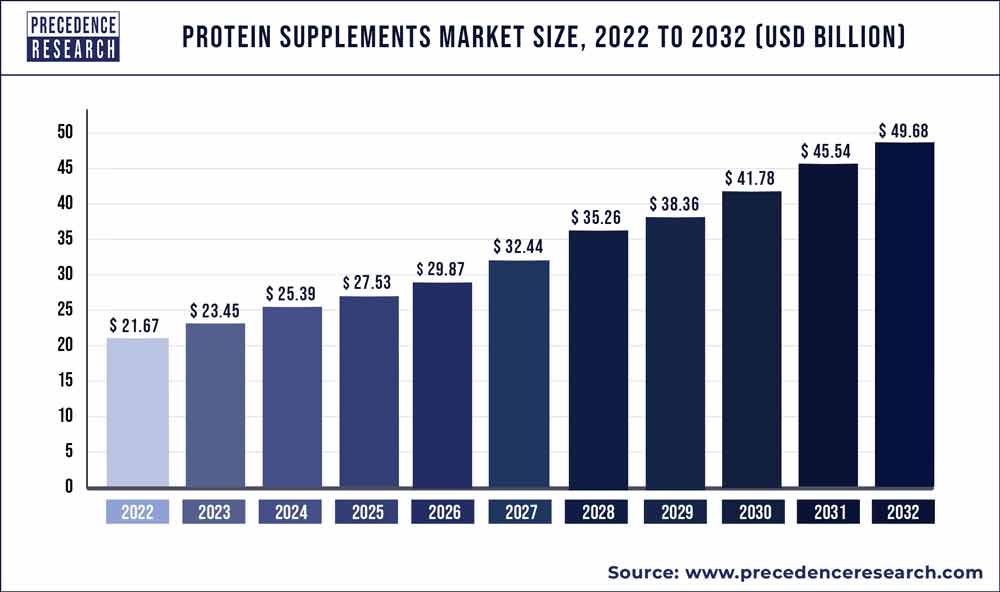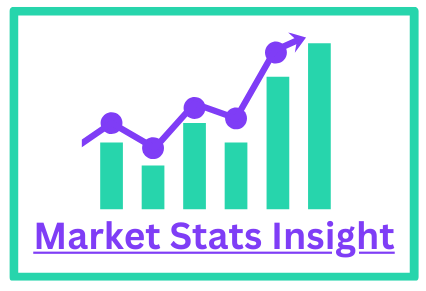The global protein supplements market size reached USD 21.67 billion in 2022 and is projected to hit around USD 49.68 billion by 2032, expanding at a CAGR of 8.7% from 2023 to 2032.

Regional Stance
Protein Supplements Market Trends
- Growing Health Consciousness: With an increasing focus on health and fitness, more people are incorporating protein supplements into their diets. This trend is driven by a desire to build muscle, aid in weight management, and support overall health and wellness.
- Diversification of Products: Manufacturers are expanding their product lines to offer a wider variety of protein supplements. This includes different types of protein powders such as whey, casein, soy, pea, and hemp, catering to diverse dietary preferences and requirements.
- Plant-Based Proteins on the Rise: Plant-based protein supplements have seen a surge in popularity, fueled by the growing number of consumers adopting vegetarian, vegan, or flexitarian diets. This trend reflects concerns about animal welfare, environmental sustainability, and health considerations.
- Functional Ingredients: There’s a growing demand for protein supplements fortified with additional functional ingredients, such as vitamins, minerals, antioxidants, and probiotics. These additives aim to enhance the nutritional profile of the supplements and offer additional health benefits.
- Convenience and Portability: Busy lifestyles have led to a preference for convenient protein supplement formats, such as ready-to-drink shakes, protein bars, and single-serve packets. These products offer on-the-go nutrition and are particularly popular among athletes, travelers, and busy professionals.
Protein Supplements Market Dynamics
Driver
Restraint
Opportunity
